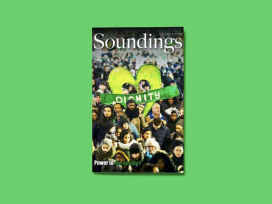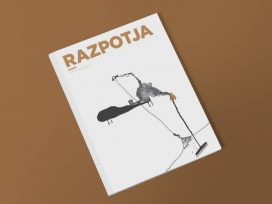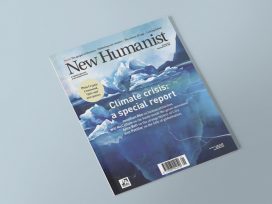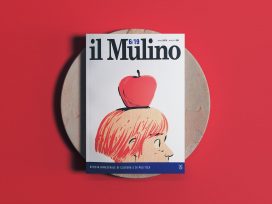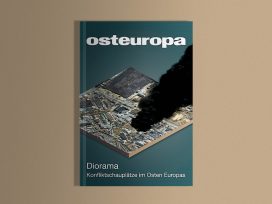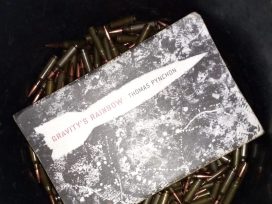What is rubbish and when does something become it? Slovenian journal ‘Razpotja’ devotes its tenth anniversary issue to the philosophy and economics of trash.
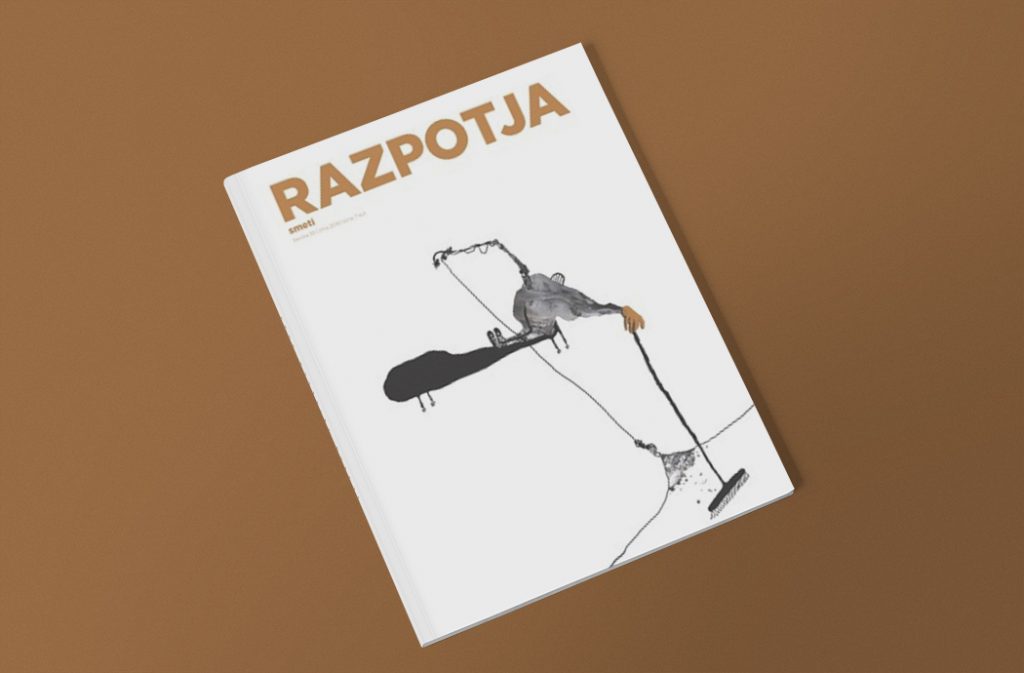
Razpotja 4/2019
Razpotja’s tenth anniversary issue focuses on rubbish. What is rubbish and when does something become it? In one sense, rubbish can be seen as a human achievement, albeit of dubious worth: ‘It took us a long time before we were able to dissect nature to such an extent that our products would no longer simply return to it’, comments editor Martin Hergouth.
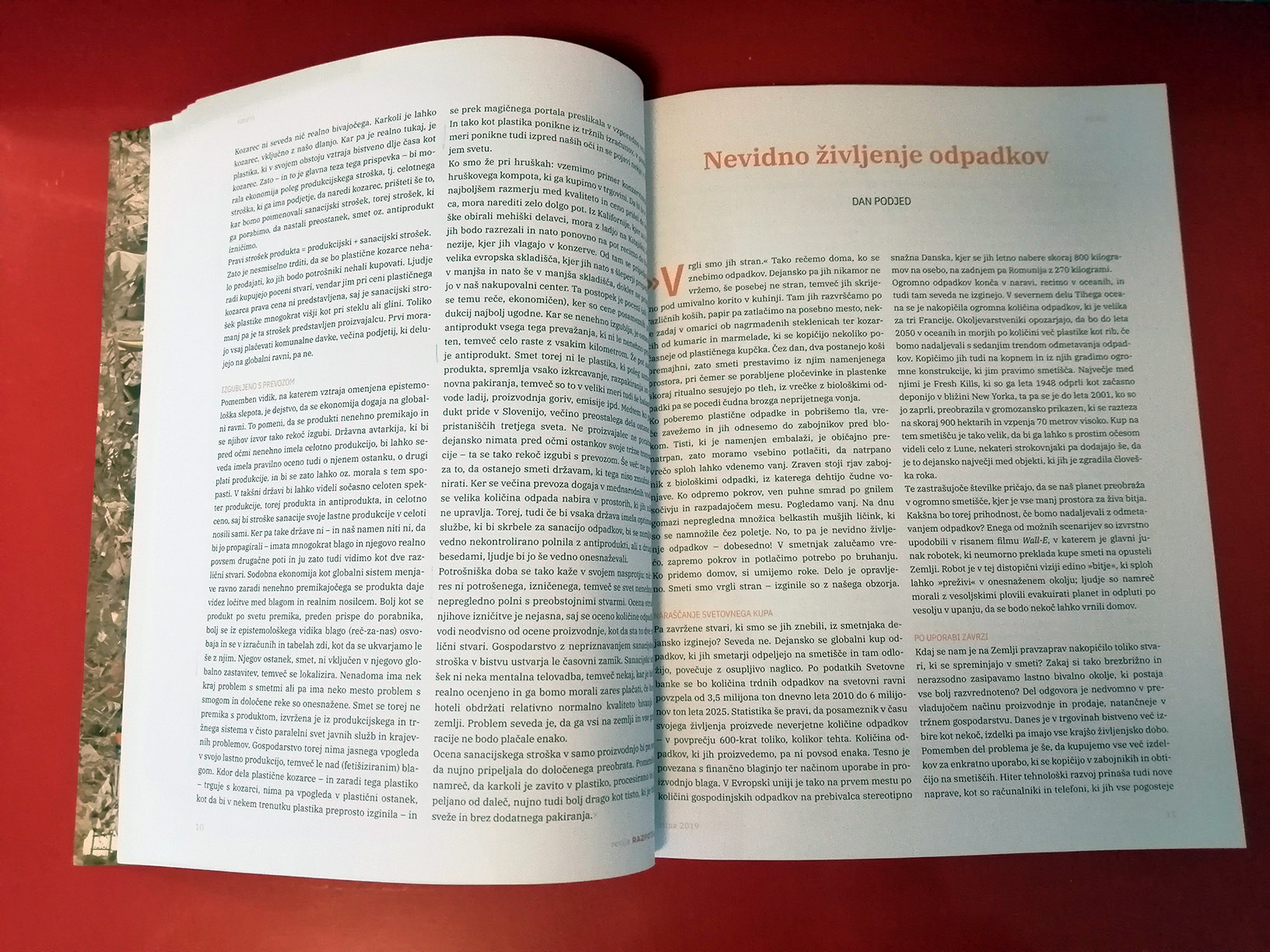 Nature
Nature
In his book Humankind (2017), Timothy Morton writes that ‘One’s garbage doesn’t go “away” — it just goes somewhere else.’ Katja Huš picks up on Morton’s concept of nature as integral rather than extraneous to human life. ‘While the plastic bag has become a symbol for throwaway consumer culture and environmental destruction,’ she argues, ‘nuclear waste and carbon emissions still seem to be too far from sight to trigger wider public concern and reaction.’
Economy
In consumer society, nothing is truly consumed, argues Miha Kosovel. ‘Rubbish is perceived as a by-product when it is actually the direct product of a product, so the real costs of the product should also include the cost of having to get rid of that rubbish’. These costs are much higher for plastic than, for example, glass; yet plastic packaging remains cheaper, because ‘plastic disappears from market calculations in the same way that it disappears from sight, reappearing somewhere in the third world.’
Maidan
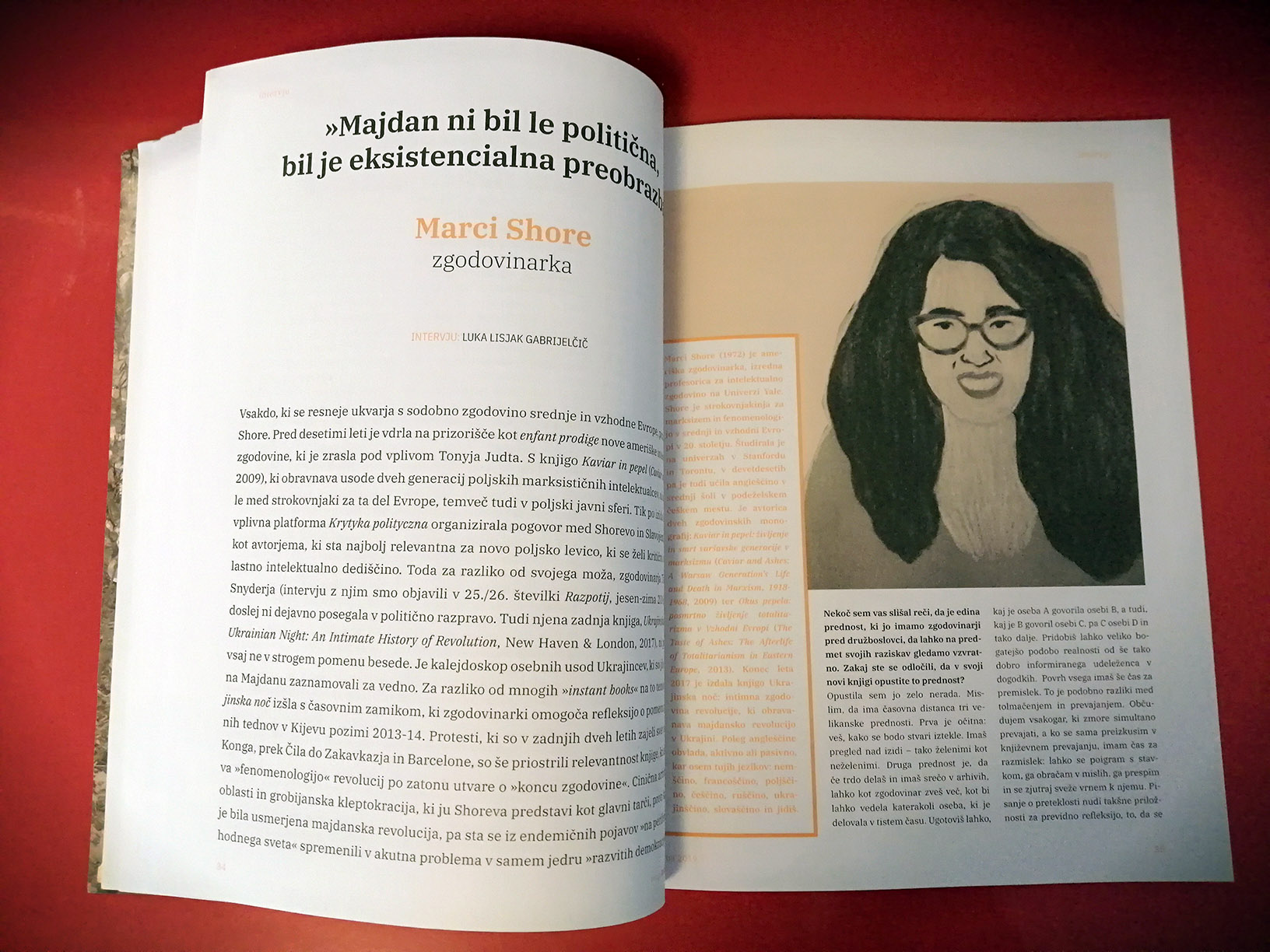
With her book The Ukrainian night: An Intimate History of Revolution, Marci Shore says she wanted ‘to capture historical experience as something intimate’. Fascinated by questions of generation, she explains the extraordinariness of the Maidan protest, where instead of pulling their children off the streets, their parents joined them: ‘I wanted to tell these stories: what does it mean to join the revolution and risk your life with your child or a parent.’
More articles from Razpotja in Eurozine; Razpotja’s website
This article is part of the 3/2020 Eurozine review. Click here to subscribe to our reviews, and you also can subscribe to our newsletter and get the bi-weekly updates about the latest publications and news on partner journals.
Published 27 February 2020
Original in English
First published by Eurozine
© Eurozine
PDF/PRINTNewsletter
Subscribe to know what’s worth thinking about.
Related Articles

Whether defending human rights on an international stage, checking facts from the frontline, processing traumatic experiences over a lifetime, or even questioning the language you have spoken since childhood – all matter in the collective fight for justice.
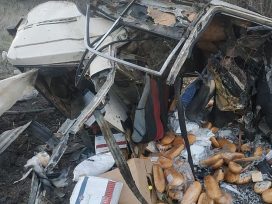
Time to live
Ukrainian cuisine, literature and cafés
Defending territory in war expands beyond physical frontlines to include cultural ground. Reclaiming signature dishes, language and public space contests their colonial assumption. Upholding traditions and retaining small home comforts takes on greater significance.
